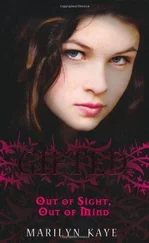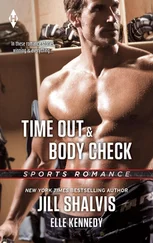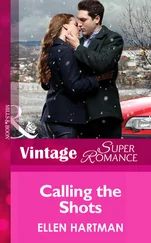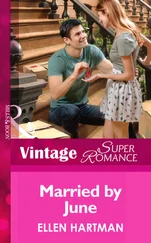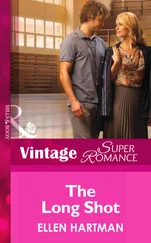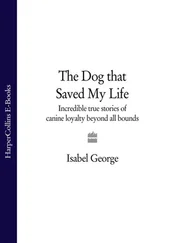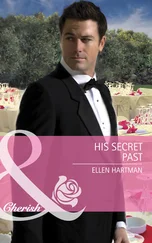Mostly through basketball.
Now, for the first time, there was nothing tying him to Deacon. His brother had married his girlfriend, Julia, a little more than seven years ago. They had a full plate running the Fallon Foundation Centers and caring for the teenagers they took in as foster kids.
Without basketball, where would his relationship with Deacon land?
For that matter, what would his life look like? It had emptied out in the seconds after he got hit by that truck.
He could do anything. He’d owed a debt to his brother and he’d fulfilled it by playing as long and as well as he could.
“You want to go back to sleep?” Deacon asked.
“In a minute.” He tried to pull the sheet up, but the movement hurt too much. His brother took over, settling it around his shoulders.
“I’m going to get a nurse in here.”
Wes hoped the nurse would give him something to take the edge off the pain so he could sleep. “You sure you didn’t hear anything about a dog? Not in the accident report or anything?”
Deacon shook his head. “Nothing. I wish someone had told me about it. I wouldn’t have been so worried that—” He stood quickly. “Listen, Wes, Julia said I should wait until you’re feeling better, but I’m just going to lay this out there. You don’t have to say yes or no right away.”
Wes really wanted the drugs he was imagining the nurse would bring as soon as Deacon stopped acting out this Lifetime-movie moment.
“Spit it out.”
“I have this job and I want you to take it. I want you to come work for me.”
“A job?”
“Something to keep you busy.”
“I know what a job is. What do you have in mind?”
“You know the Hand-to-Hand pilot program?”
“Yes.”
Deacon and Julia ran the Fallon Foundation, building centers offering sports, arts and tutoring programs in economically depressed towns. The Hand-to-Hand program would make sister center relationships between Fallon centers and those in wealthier locations. The program’s mission statement said, Everyone needs a hand sometimes and everyone has something to offer.
“We have the site identified—it’s a town called Kirkland, right on Kueka Lake. We need the town to give us the lease on the space we’ve picked out, but it means getting a waiver from them. We’re in the last steps of negotiating a partner grant with Robinson University to fund a high-tech tutoring service to three other Fallon centers in New York State. I could really use someone on the ground full-time in Kirkland who can build goodwill and spread the word so we can close both those deals.”
Wes’s head had started throbbing. Hard work didn’t scare him, but he wasn’t sure what Deacon was asking him to do, let alone if he’d be capable of doing it.
“Don’t you want someone with experience?”
“Weren’t you the social chairman of your fraternity?”
“Yes, but you’re not asking me to hire a deejay. You want—”
“Shut up and listen. Didn’t the Madrid team make you do the press conferences after the games because your sound bites were more entertaining than half the games?”
He needed his brother to shut up so he could get some drugs. “What’s your point?”
“My point is, this job is about making people like and want to help the Fallon Foundation. You know our business and people like you.”
Wes stared at his brother.
“I don’t understand it, either,” Deacon said. “But they do.”
“Don’t you need a marketing guy? I majored in electrical engineering.”
“And I would trust you to rewire my toaster.” His brother nodded. “I would. I would also trust you to show Kirkland exactly what the Fallon Foundation Center is and why they need us in their town. If we get the Hand-to-Hand partnerships going, our ability to bring changes to other communities is going to double. Help me bring that home, Wes.”
Since he ultimately owed his life to his brother, when the rare opportunity for him to help came along, he never said no. He had very little understanding of what Deacon wanted him to do, but that was beside the point.
He nodded, which sent the throbbing inside his head off the charts.
Deacon’s jaw tightened. He leaned forward as if he was going to pat Wes again or maybe hug him, but he said simply, “I’ll get the nurse.”
A few minutes later, with what felt like a very effective painkiller finally pumping through his IV, Wes started drifting off again. Deacon was on the phone, talking softly.
“He’s going to do it, Julia. I know you wanted me to wait, but I needed to get him settled.” A pause. “He said there was a dog in the street. He was trying to grab it.”
Wes closed his eyes.
Deacon’s voice was almost a whisper. Wes might have missed what he said next, but he didn’t.
“How do I know if it’s the truth? I want it to be. He’s not going to tell me and you know it. We’ll keep an eye on him. What else can we do?”
* * *
I T WAS ANOTHER THREE DAYS before the doctors were satisfied that he was recovered enough to discharge him. Wes didn’t tell Deacon he’d overheard him. He noticed that his brother was never out of the room long, and twice he woke up to find Deacon staring at him.
The constant scrutiny was disconcerting. Did Deacon really think he’d have tried to kill himself over the Serbia trade?
When he was awake, they went over the Hand-to-Hand center in painstaking detail. By the time he was ready to leave the hospital, Wes was pretty sure he knew more about Kirkland, N.Y., than the mayor of the town. (Jay Meacham, age forty-six. Kirkland High, class of 1980, guard on the lunchtime basketball team at the Y, scotch and soda, never married.)
In the span of a week, he’d been hit by a truck, released by his team and educated in the history and traditions of one very small town in New York in preparation for the new job he hadn’t applied for and didn’t really know how to do. Life was dragging him along again. And he felt just as impotent now as he had when he’d heard about the trade to Serbia. The situation was different, because he was helping Deacon, but somehow it felt the same.
He went back to the apartment he’d been sharing with two of his teammates and took three days to pack up his life and say his goodbyes. On the streets, he kept an eye out for the little dog, but it never showed up. On the upside, his roommates swore they hadn’t seen it dead by the side of the road, either. Maybe it had found a new home.
At the next home game, Wes’s last, the arena was packed. Wes gave a farewell speech at halftime and as he ran through the joking acknowledgments he’d written for his teammates, he looked into the stands. Was this it? The final time he’d be at center court, entertaining a crowd?
That night he made the very bad decision to go out for a tour of nightclubs with the team. He ran into Fabi, who made a big deal over his scar and then tried to drag him into a private room to make out. He thanked her for the cactus and declined the invitation.
When he woke up the next morning he quickly discovered his teammates had given him a thoughtful parting gift. His usual thick hair was gone, shorn down to patchy stubble.
He was staring at himself in the bathroom mirror and wondering if he had time to hunt down Gary Krota to make him eat his razor, when his brother called.
“We have a problem,” Deacon said. “This woman in Kirkland, Trish Jones, ran a fundraiser for us last month. All her own idea and effort, but she used our name and logo. I didn’t actually know about it until she’d been promoting the event for a few days and by then it was too late to cut her off. She got the community involved and we had to be careful because we need as much goodwill as we can muster.”
Читать дальше


